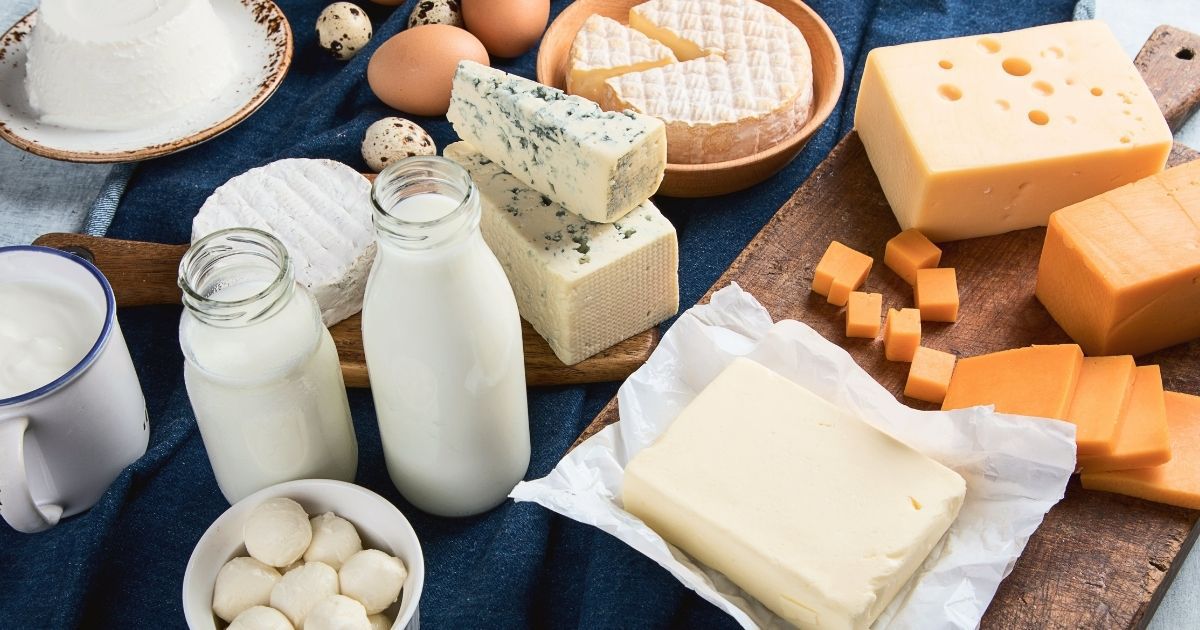Why no dairy after a dental implant?
Dental implants are one of the most popular solutions for replacing missing teeth, offering excellent aesthetics, functionality, and durability.
However, they involve a surgical procedure which means there are some common dental implant aftercare tips to pay attention to.
Read on to learn more about why your dental professional might recommend no dairy after a dental implant procedure.
Reading time: 4 minutes

Dairy consumption risks after dental implant
Avoiding consuming dairy products is one standard recommendation, but that begs the question of why dairy after a dental implant procedure can cause complications.
The short answer is that dairy products like milk, cheese, and yoghurt can pose several potential risks after dental surgery, including infection, gum inflammation, or implant dislodgment.
The long answer requires some more explanation. There isn’t a lot of publicly available research into the impact of dairy on the healing process after dental surgery, so the advice to avoid it is primarily precautionary.
What are the potential risks of dairy after dental implant surgery?
Although dairy is generally thought of as being good for teeth because it’s high in calcium, it’s associated with several risks after a dental implant procedure.
Increased risk of infection
The risk of infection within the dental implant surgical sites is one of the biggest concerns after dental implant surgery, and avoiding dairy is primarily recommended to reduce that risk. This is because dairy products, especially when they’re high in sugar, can foster bacterial growth.
There’s no firm scientific consensus on just how risky bacteria in dairy are when it comes to infection after dental implants. However, avoiding introducing it altogether can minimise the risk, ensuring that the dental implant healing process is as quick and painless as possible.
Complications with antibiotics
Although it’s not always the case, some dental implant aftercare procedures might include a course of antibiotics to reduce the risk of infection in the days or weeks following surgery.
Since it’s generally recommended to avoid consuming dairy up to three hours before or after taking antibiotics because it can reduce their effectiveness, it’s particularly important if you’re taking antibiotics after a dental implant.
Potential for dislodgement
Most dietary recommendations after a dental implant are based on avoiding hard, sticky, or crunchy foods, which can disturb or dislodge the implant and reduce its stability. This can cause further complications, and potentially even complete implant failure.
Some dairy products, like milk or runny yoghurt, are soft and smooth enough that they likely wouldn’t pose a risk. But others, like hard cheeses or thick yoghurts, can impact the healing process and should be avoided.
Other dietary recommendations after a dental implant
Avoiding dairy is just one of several dietary recommendations that are often provided as part of a dental implant aftercare routine. Other things your dental professional might recommend avoiding include:
- Hard and crunchy foods: Chewing foods like nuts, hard sweets, and raw vegetables can all put excessive pressure on the implant site, potentially causing damage.
- Sticky foods: Excessively sticky foods like caramel, gummy sweets, and dates can stick to the area around the implant, encouraging bacteria growth that can lead to infection.
- Spicy foods: Spicy foods or ingredients like chilli powder, hot curries, and hot sauces can all irritate the implant site, causing discomfort or pain.
- Acidic foods: Foods high in acid, like citrus fruit and tomatoes, can irritate the area around the implant, causing discomfort.
- Alcohol: It’s also not uncommon for a dental implant aftercare plan to recommend avoiding smoking or drinking alcohol.

What to eat after dental implant surgery
The list of foods to avoid in the days or weeks following a dental implant procedure might seem overly restrictive, but trying your best to stick to it is an important part of the healing process.
In place of hard, crunchy, sticky, spicy, acidic, or dairy foods, try to focus your diet around soft and nutrient-rich meals like:
- Smoothies including fruit and vegetables
- Soft whole fruits, like mashed bananas
- Warm soups or broths that contain lots of nutrients
- Soft carbohydrates, like mashed potatoes
- Sources of proteins like eggs or omelettes
This diet is mostly similar to what it’s suggested you should eat after a tooth extraction to reduce the impact on blood clotting. But if you’re unsure about what you can eat and what you should be avoiding, get in touch with your dental professional to check.
Calcium and other essential nutrients are important for health, however taking steps to minimise the chances of infection, inflammation, or implant dislodgement is an important part of dental implant surgery recovery and dental care for the maintenance of oral health.